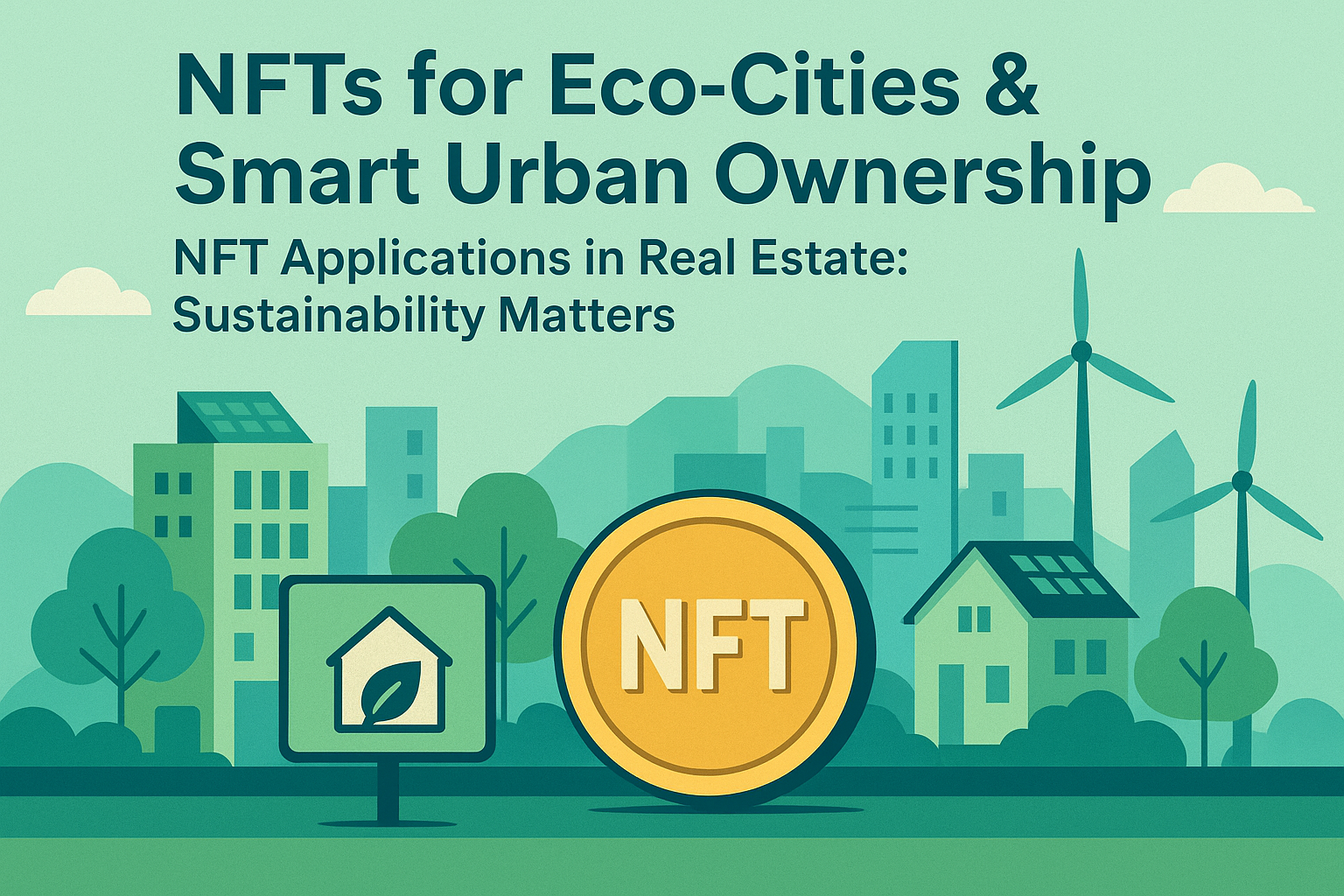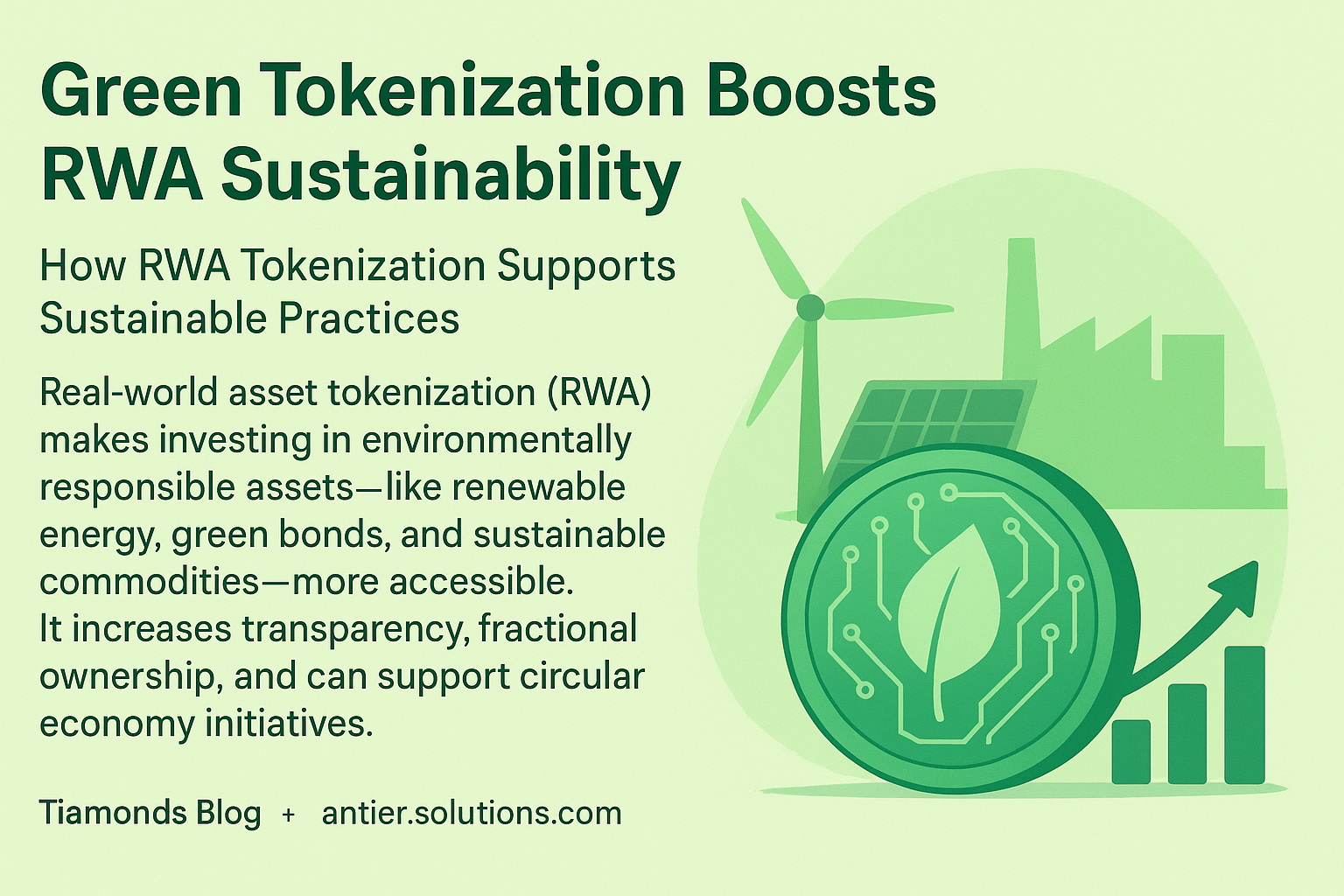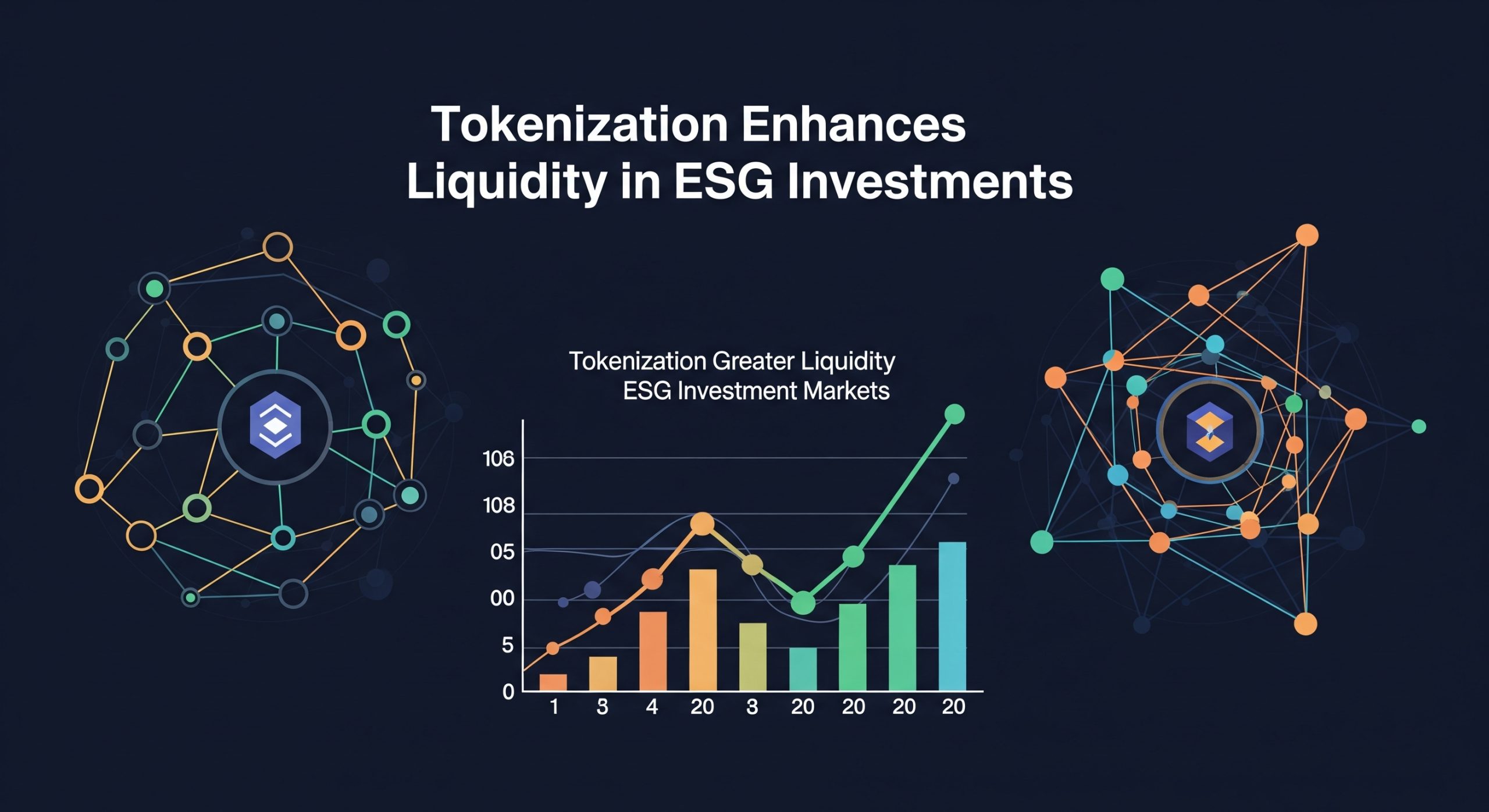The intersection of blockchain innovation and urban development is creating a new paradigm for how we think about property, cities, and environmental responsibility. Non-fungible tokens (NFTs) — often associated with digital art and collectibles — are rapidly evolving into tools for sustainable urban ownership and smarter real estate models. This shift could redefine how we design, build, and live in eco-cities.
Rethinking Property Rights Through Digital Assets
Traditionally, real estate transactions rely on complex paperwork, intermediaries, and fragmented records. By contrast, NFT-based property models allow ownership rights to be securely recorded on blockchain networks. Each NFT can represent a physical property, a share of a development project, or even specific infrastructure assets — enabling faster, more transparent, and fraud-resistant ownership transfers.
But this technology is doing more than just streamlining transactions. Forward-thinking urban planners are using NFTs as programmable assets — embedding terms, sustainability goals, or energy efficiency requirements directly into smart contracts.
Sustainability at the Core of Smart Cities
Eco-cities demand more than green spaces and solar panels; they require systems that incentivize and verify sustainable practices. NFT-powered property rights offer just that:
-
Energy data tracking: Owners can prove their buildings meet efficiency benchmarks.
-
Carbon offset integration: NFTs can automatically trigger offset purchases when energy thresholds are exceeded.
-
Green investment access: Developers can tokenize projects, attracting eco-focused investors worldwide without traditional geographic or financial barriers.
This approach aligns with the global shift toward urban environments that reduce emissions, recycle resources, and prioritize livability — all while leveraging secure, decentralized platforms that minimize environmental impact.
The Role of Sustainable Blockchain Platforms
The concern over blockchain’s energy consumption is real. That’s why new platforms, such as ecos.am and similar sustainable protocols, are prioritizing low-energy consensus mechanisms (like proof-of-stake) to ensure that digital property rights don’t undermine their green objectives. These platforms make it possible for cities to implement NFT-based real estate solutions without sacrificing environmental integrity.
What Comes Next?
Imagine buying a home in a carbon-neutral smart city where:
-
Your ownership deed is an NFT verified on an eco-friendly blockchain.
-
Your property taxes adjust automatically based on real-time energy efficiency.
-
Investors worldwide can fund urban green initiatives with transparent returns.
This isn’t a distant future — it’s a model already in early pilot phases. By merging property rights with sustainable technology, NFTs are helping cities evolve into ecosystems where ownership, innovation, and environmental responsibility coexist seamlessly.




